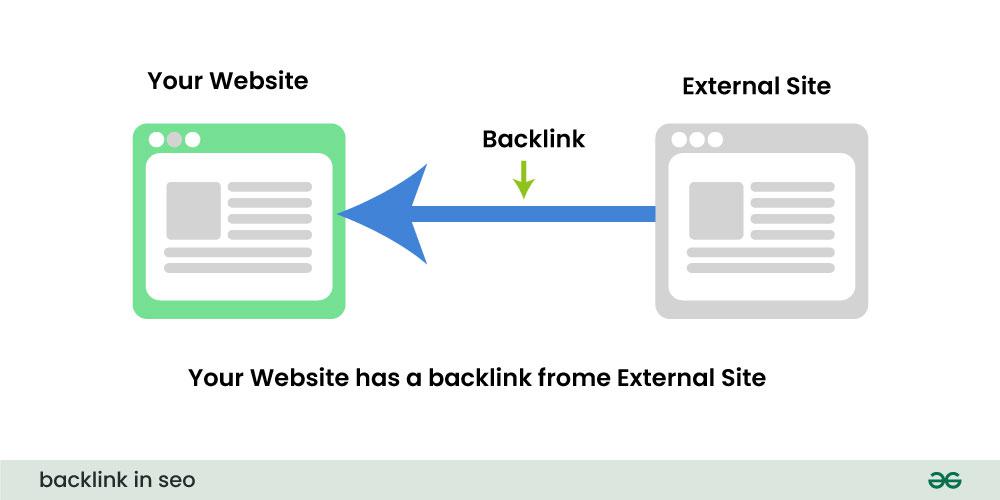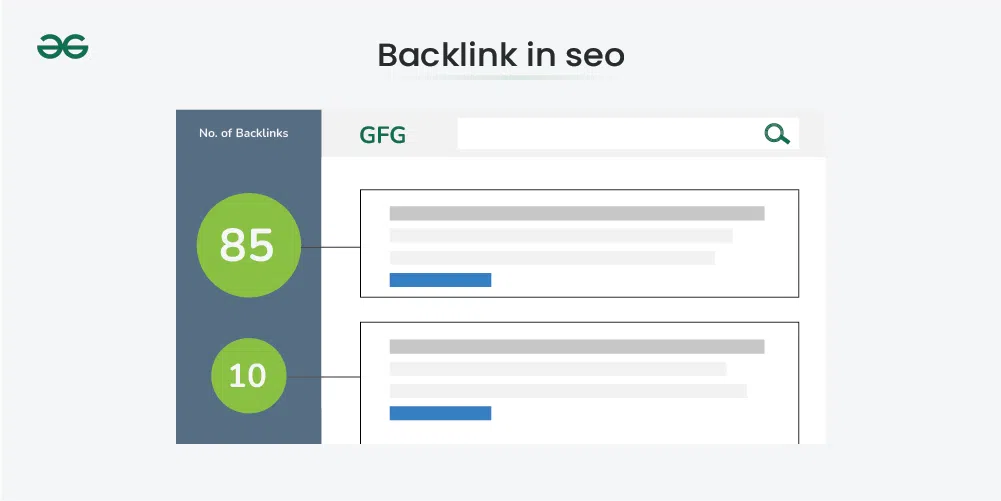Off Page SEO | Definition, Importance and Strategies
Last Updated :
18 Mar, 2024
Off Page SEO Optimization plays an important role in optimizing your website. Off-page SEO increases the reach of your website beyond its pages, while On Page SEO Optimization SEO makes sure your website is optimized for search engines and user-friendly from the inside out. This involves using techniques to build a solid online reputation and gain the confidence of search engines such as Google.

Off-Page SEO (Off Page Search Engine Optimization)
What is Off-Page SEO (Off Page Search Engine Optimization) ?
Off-page optimization refers to the technique that can be used to improve the position of a website on a search engine results page(SERPS). Many people associate Off Page Search Engine Optimisation with link building but it is not only that. It is also used in promotion methods like blogging, website design, social bookmarking, etc.
Why Is Off Page SEO Important?
To get Google to like your website, off page SEO optimization is important. When we talk about “off page SEO,” we are talking about actions that take place off of your website yet affect its Google rating.
- Drives referral traffic – Backlinks not only pass authority and signals of trust, they also have the potential to drive direct visits to your site through click-throughs. This can become a significant source of quality traffic over time.
- Broadens reach and awareness – Getting links and mentions on other sites, especially influential sites or publications in your niche, helps more of your target audience discover your brand and content. This expands your visibility.
- Provides more data signals – External sites linking to your pages gives search engines more signals for understanding topics you cover and determining which queries your content is relevant for. More contextual data enables improved rankings.
- Complements other efforts – While high-quality content, technical SEO, site speed, etc. matter greatly, off-page factors make those other efforts more impactful by lending credibility and sharing your content to bring in users directly. The efforts compound each other.
Off Page SEO Optimization Factors
Off-page SEO refers to the optimization efforts that take place outside of your website to improve its visibility and authority on the web. These factors can significantly impact your website’s search engine rankings. Here are some important off-page SEO factors:

Backlinks
Backlinks are crucial for search engine optimization. They serve as “votes of confidence” from other websites, indicating that your content is valuable and trustworthy. Quality is more important than quantity when it comes to backlinks. High-authority and relevant sites linking to your content can significantly boost your search engine rankings.
Affect of Backlink on SERPs

Affect of Backlink on SERPs
2) Social Media Engagement
Social media signals play a role in SEO, though indirectly. Active engagement on platforms like Facebook, Twitter, LinkedIn, and Instagram can increase the visibility of your content. When people share, like, or comment on your posts, it can contribute to a wider online presence and potentially impact your search engine rankings.

Social Media Engagement
3) Brand Mentions
Brand mentions across the web, even without a direct link, can positively influence your online reputation. Search engines may consider these mentions as indicators of brand authority and credibility. Monitoring and managing brand mentions help in building a strong and positive brand image.
4) Guest Posting
Guest posting involves creating and publishing content on other websites within your industry or niche. This not only provides valuable information to a new audience but also allows you to include a link back to your own site. Guest posting helps in building backlinks, establishing authority, and expanding your reach.
5) Page Speed
Page speed is a critical on-page factor that can also impact user experience and search engine rankings. Google, in particular, considers page speed when determining search rankings. Fast-loading pages not only improve user satisfaction but also contribute to better SEO performance.
Impact of Page Speed on Bounce Rate

Off-Page SEO | Bounce Rate on Basis of Page Load Speed
6) Crawlability
Search engines use crawlers to navigate and index your website’s content. Ensuring that your website is easily crawlable is vital for SEO. Use a sitemap, optimize your website’s structure, and fix any crawl errors to help search engines index your pages accurately.
7) Mobile Friendliness
With the increasing use of mobile devices, Google considers mobile friendliness as a ranking factor. A responsive design that provides a seamless user experience across different devices is crucial for SEO. Mobile-friendly websites are more likely to rank higher in mobile search results.
7) Domain Authority
Domain Authority (DA) is a pivotal factor in off page SEO optimisation, serving as a metric that indicator a website’s overall credibility and influence. Higher DA indicating greater authority. In off-page SEO, the quality of backlinks is important, and acquiring links from high-DA websites can significantly enhance a site’s authority. In order to Check the Domain Authority, we can visit Semrush Backlink Analytics.

Semrush Backlink Analytics
After typing your domain in the box, and click “Analyze”, then your Authority Score is displayed, For the Domain “geeksforgeeks.org” , the Authority Score is 85, that is very good according to the semrush.
.png)
Domain Authority (GeeksforGeeks)
|
Aspect
|
On Page SEO
|
Off Page SEO
|
|
Location
|
Inside your website
|
Outside your website
|
|
Focus
|
Content and structure of your web pages
|
Reputation and popularity across the internet
|
|
Examples
|
Using relevant keywords<br> – Optimizing meta tags<br> – Creating quality content
|
Building backlinks from other websites<br> – Social media activity<br> – Online mentions and reviews
|
|
Purpose
|
To make your website user-friendly and easily understandable by search engines
|
To enhance the website’s credibility and authority in the eyes of search engines
|
|
Control
|
You have direct control over on-page elements
|
Some aspects, like backlinks, depend on external factors and are less directly controllable
|
|
Results Timeframe
|
Changes may have a quicker impact on search rankings
|
Results often take time to accumulate as they depend on external actions and recognition
|
|
Examples
|
Choosing relevant page titles<br> – Including descriptive meta descriptions<br> – Internal linking for better navigation
|
Acquiring quality backlinks from authoritative sites<br> – Engaging in social media activities<br> – Encouraging positive online reviews
|
Off Page Search Engine Optimization Strategies for Enhanced Website Visibility
Some of the most common off page SEO strategies to boost your website visibility on Google are as follows:
- Quality Backlinks: Getting solid backlinks from authoritative websites is an essential off page SEO tactic. Google interprets links from other websites as endorsements of your work.

Educative is getting a high Quality backlink from Geeksforgeeks
- Social Media Presence: Promote yourself actively on social media. Use social media sites like Facebook, Twitter, and Instagram to share your work. Google’s website ranking can be positively impacted by social signals.
- Content Marketing: Produce good material that can be shared. People are more inclined to link to your material when they find it helpful, which improves off site search engine optimzation.

Content Marketing
- Guest Posting: Write content for other websites in your industry. This gives you the chance to obtain useful backlinks in addition to expanding your audience.
- Online Directories: Make sure your company is included in the appropriate internet directories. This improves your website’s exposure locally and in search results in addition to generating backlinks.
- Influencer Collaborations: Join forces with influential people in your sector. Influencers may greatly increase your Google exposure and reputation by mentioning or linking to your website.
- Engage in Community Forums:
- Find forums related to your industry or expertise.
- Register and create a complete, professional user profile.
- Participate in discussions with insightful comments and helpful information.
- Include a link to your website in your forum signature.
- Engage with community members, fostering relationships and credibility.
- Adhere to forum guidelines to maintain a positive reputation.
- Brand Mentions: Keep an eye out for brand references online. Mentions of your brand, even in the absence of a link, increase the exposure of your website overall.
How to Implement Off-page SEO Strategies
- Setting Goals and Objectives:
- Define clear and specific goals for your off page SEO Optimization efforts. These goals should align with your overall marketing and business objectives.
- Common goals include increasing organic website traffic, improving search engine rankings, generating leads, and driving sales.
- Identifying Target Audience:
- Research and understand your target audience’s needs, preferences, and behaviors. This will help you create content and outreach strategies tailored to resonate with them.
- Use analytics tools, social media data, and market research to gather insights into your target audience.
- Keyword Research:
- Identify relevant keywords and phrases that your target audience is searching for. These keywords should be incorporated into your content, meta tags, and outreach efforts.
- Use keyword research tools, Google Search Console, and competitor analysis to find high-value keywords.
- Creating High-Quality Content:
- Create valuable, engaging, and informative content that resonates with your target audience and addresses their needs.
- Ensure your content is well-written, grammatically correct, and easy to understand.
- Utilize various content formats, such as blog posts, articles, infographics, videos, and podcasts.
- Building Backlinks:
- Backlinks are links from other websites to your website. They are a crucial factor in off-page SEO as they signal to search engines that your website is authoritative and trustworthy.
- Engage in outreach campaigns to acquire backlinks from high-quality, relevant websites.
- Participate in guest posting, broken link building, and directory submissions to earn backlinks.
- Promoting Content on Social Media:
- Share your content on social media platforms to reach a wider audience and generate engagement.
- Encourage your followers to like, share, and comment on your content.
- Use social media analytics to track the performance of your content and fine-tune your strategies.
- Interacting with Influencers:
- Identify and connect with influencers in your industry who can amplify your content and reach a broader audience.
- Offer guest posting opportunities, product reviews, or sponsored content to influencers.
- Engage with influencers on social media and collaborate on content creation.
- Submitting Guest Posts:
- Guest posting involves writing and publishing content on other websites or blogs to earn backlinks and exposure.
- Choose reputable websites with a relevant audience and high domain authority.
- Ensure your guest posts are high-quality, provide value to the readers, and align with the website’s editorial guidelines.
- Participating in Forums and Communities:
- Engage in online forums, communities, and discussion boards related to your niche.
- Provide valuable insights, answer questions, and participate in discussions.
- Subtly promote your website or content when appropriate.
Conclusion
In Conclusion, Making your website stand out to Google and other search engines is mostly dependent on off page SEO or (Off Site SEO). You may improve the trustworthiness and access of your website in Google search results by focusing on off-website strategies like influencer collaborations, social media engagement, and the development of high-quality backlinks. Off page SEO considers how your content is viewed and recognized by the larger online community in addition to what is actually on your website. Therefore, putting time and effort into efficient off page SEO techniques is essential if you want Google to genuinely value your website.
Share your thoughts in the comments
Please Login to comment...